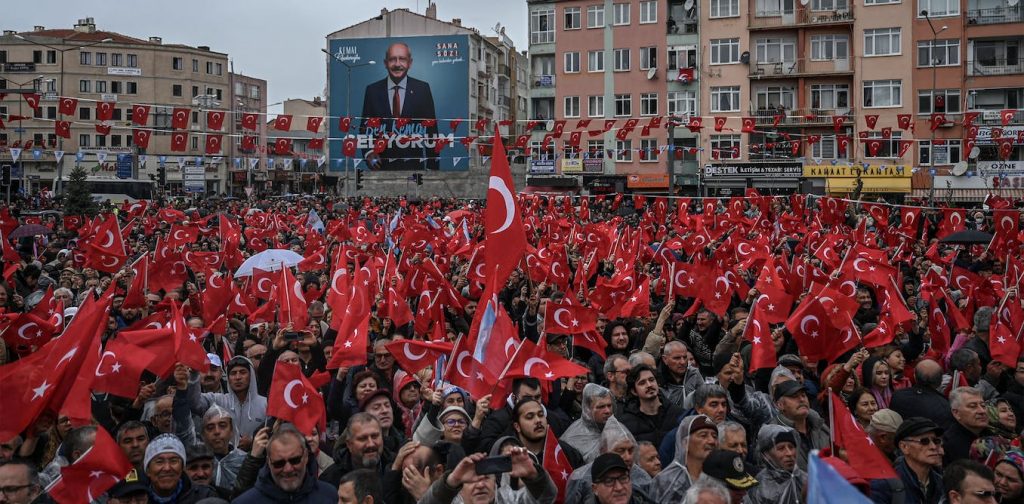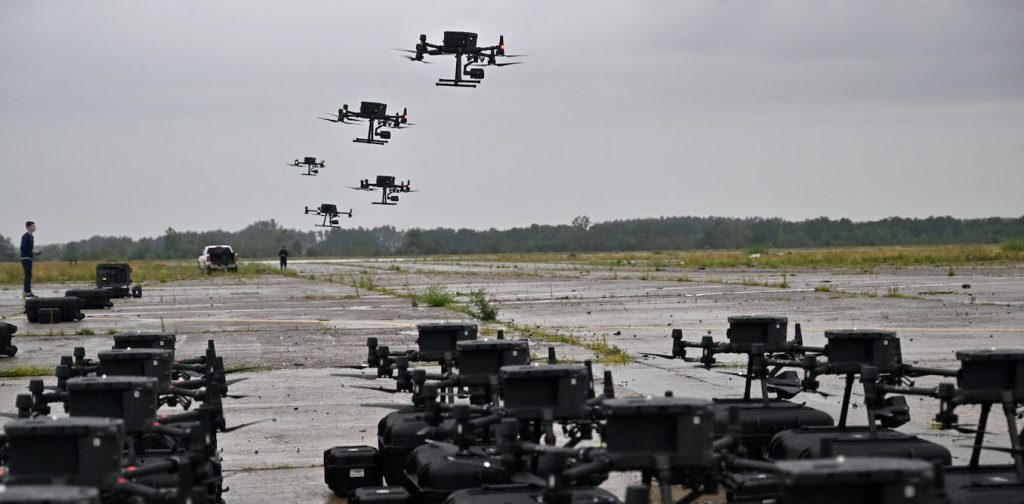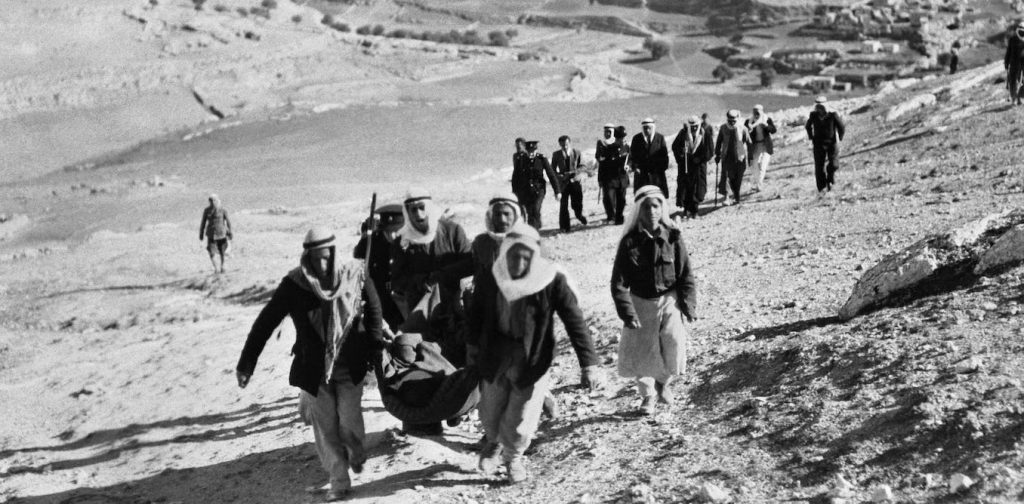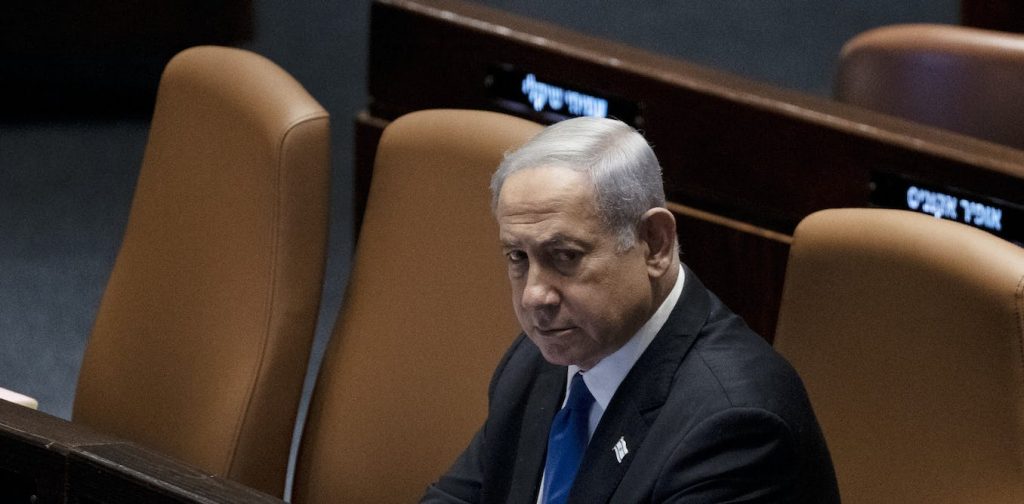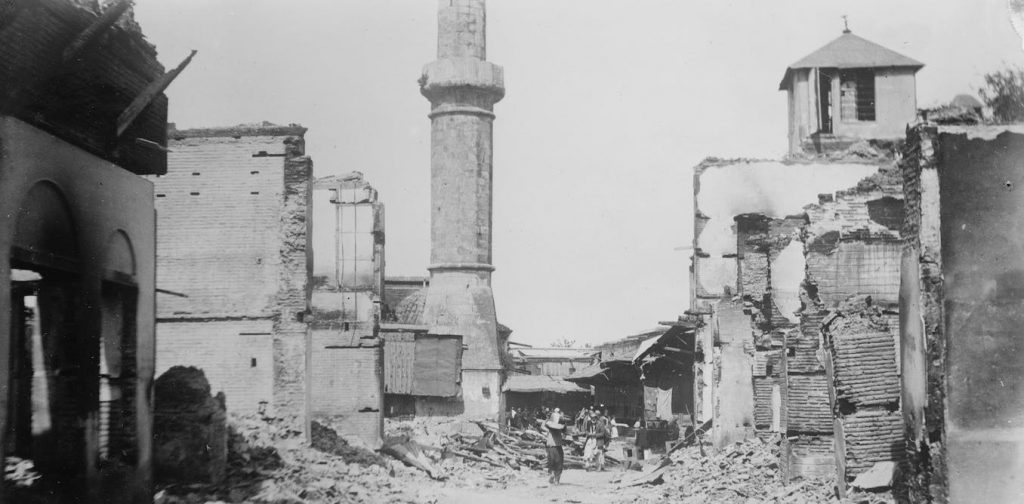Nagorno-Karabakh blockade crisis: Choking of disputed region is a consequence of war and geopolitics
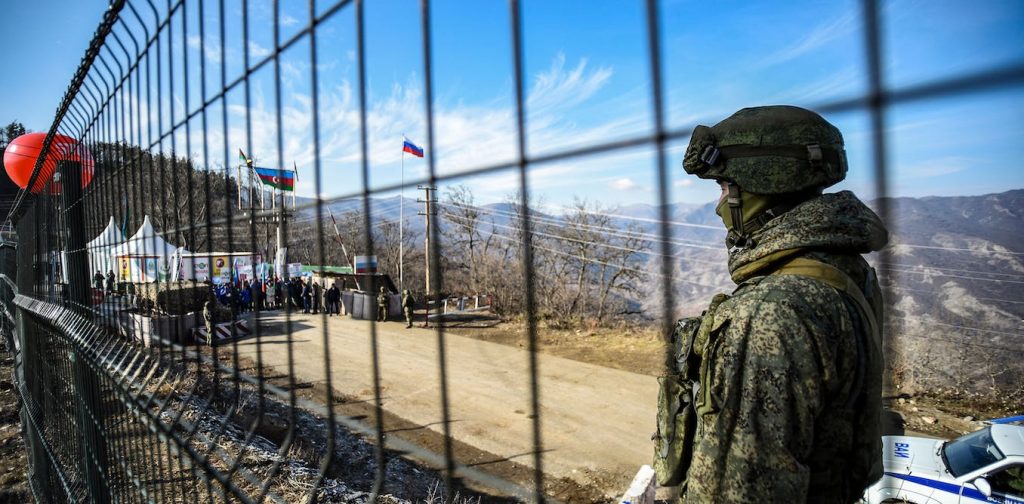
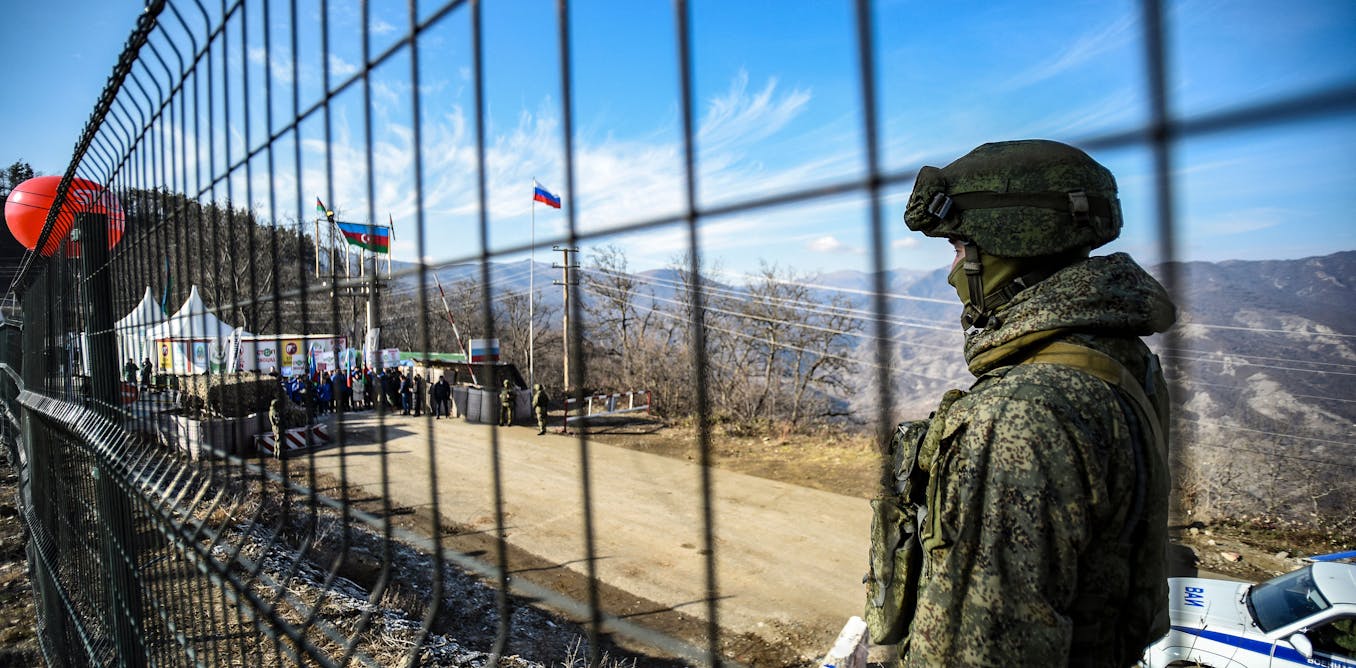
Wars have consequences – and they are drastically different for the winners and losers.
In the South Caucasus, a region far from most Americans’ attention, the democratic republic of Armenia lost a short but devastating war three years ago to Azerbaijan, its larger, richer neighbor.
That defeat is being felt hardest today by the increasingly desperate people of Nagorno-Karabakh. Known by Armenians as Artsakh, or “Black Garden,” the enclave – Armenian in population but within Azerbaijan territory – has been subjected to a devastating monthslong blockade that has prevented food and medical supplies reaching its 120,000 residents.
In the words of one former International Criminal Court prosecutor, what is occurring may amount to “genocide.” On Aug. 16, 2023, the U.N. Security Council held a special meeting after an appeal by the Armenian ambassador for the international community to act and help a region “on the verge of a full-fledged humanitarian catastrophe.”
As a long-time analyst of the history and politics of the South Caucasus, I see the fate of Nagorno-Karabakh being tied not just to its warring neighbors but to the geopolitical concerns of the two powers – one regional, the other global – that could best intervene. With Russia and the United States preoccupied elsewhere, the choking in Nagorno-Karabakh is being largely ignored.
Legacies of the Soviet past
The current crisis has been decades in the making.
Nagorno-Karabakh was the consequence of Soviet nationality policy that recognized the autonomy of the region in the early 1920s.
In the late 1980s, as the Soviet empire began to crumble, Armenians demanded that Nagorno-Karabakh be joined to its republic. Outraged by the Armenian demands and demonstrations, Azerbaijani pogroms of Armenians erupted in an industrial Azerbaijani town, Sumgait, far from Nagorno-Karabakh, and the capital, Baku, and ethnic cleansing followed on both sides.
The violence escalated into the First Karabakh War. A 1994 armistice brokered by Russia settled the issue for 26 years, with Armenia controlling the region. By then, Nagorno-Karabakh had declared independence, though no country – not even Armenia – formally recognized it. To much of the international community, the principle of territorial integrity favored the claims of Azerbaijan. Armenians countered with appeals to the principle of national self-determination for the region.
In those decades, Armenians invaded and expanded their hold over other parts of Azerbaijan, with about a million Azerbaijanis made to leave their homes and becoming displaced persons in their own country. Meanwhile, hundreds of thousands of Armenians fled from Azerbaijan to avoid more violence from angry, embittered Azerbaijanis.
And there the frozen conflict remained, with neither side willing to make the necessary compromises to resolve their disputes.
But time favored Azerbaijan, with its oil riches and loyal ally Turkey supplying ever more sophisticated weapons. In 2020, the autocratic Azerbaijani leader Ilham Aliyev launched an attack on Armenian forces, prompting the Second Karabakh War. Aided by Turkish drones, Israeli weapons and Syrian mercenaries, Azerbaijani forces routed the Armenians. After 44 days of brutal bloodletting, the Armenian government of democratically elected Nikol Pashinyan was forced to agree to a cease-fire brokered by its powerful regional ally Russia.
But with Vladimir Putin’s Russia soon mired in its disastrous war in Ukraine, Azerbaijani forces repeatedly crossed the border into Armenia. And then in December 2022, Azerbaijanis blockaded the Lachin corridor, the only effective access road from Armenia to Nagorno-Karabakh. Disguised as an ecological protest against Armenian mining in the region, the blockade was understood by Armenians to be aimed at obliterating Nagorno-Karabakh and driving the last Armenians out of Azerbaijan.
The blockade has now lasted eight months, trapping Armenians in Nagorno-Karabakh with dwindling supplies of food and medicine.
Caught in the geopolitical vise
The immediate concern is the welfare of the Karabakh Armenians, but there are larger matters at play as well. At the moment when the United States and NATO frame their support for Ukraine as a struggle to preserve a fledgling democracy against an autocratic, expansionist Russia, Western powers do not appear to be willing to press as forcefully to prevent the repressive Aliyev regime from brutal policies that appear to be aimed at driving Armenians out of Nagorno-Karabkh.
Having just returned from a stay in Armenia, I can testify that the mood among Armenians appears far from despair. Their civil society is strong and vocal, and from my observance the country is displaying resilience and determination to overcome the consequences of the war. Pashinyan, the former journalist who led the 2018 revolution that ended with his election as prime minister, was overwhelmingly reelected after he had led the country through its catastrophic failure in the 2020 war. Having rejected the oligarchic rule of the former government, it appears clear that the nation is continuing along a democratic path.
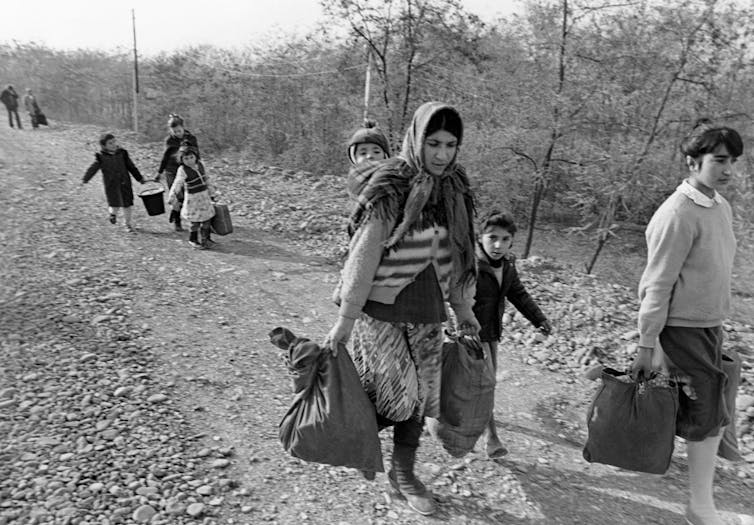 Armenian refugees fleeing Azerbaijani violence in 1988. AFP via Getty Images
Armenian refugees fleeing Azerbaijani violence in 1988. AFP via Getty Images
But given Azerbaijan’s apparent ambitions, Armenians desperately require support from other nations. They live in a dangerous and hostile neighborhood, and their only close-at-hand supporter at the moment is Iran.
Plans are underway to build a north-south highway that will increase the flow of traffic and goods from India and Iran to Armenia and on to the West while bypassing Azerbaijan. But the United States frowns on that relationship with Tehran, as well as Armenia’s continuing, fraught connection with Russia.
Moreover, with the world concerned with consequential conflicts and disputes in other places – Ukraine, the South China Sea and Syria – Armenia appears irrelevant in the larger geopolitical calculations.
Yet it remains oddly significant, not only as an endangered democracy. Armenia is a small country around which relations between Turkey and Russia, Iran and the United States, Azerbaijan, Iran and Israel turn. Its fate is tied to larger issues of the building of new understandings of how the future strategic blocs of states will be formed.
Competing global visions
Two global strategic visions are currently at play that affect the South Caucasus. As the United States struggles to maintain its role as a global superpower from the Pacific Ocean to Latin America to the Middle East and Europe, other powers – including Russia, China, India, Brazil and much of Africa – seriously question the role of the unique hegemony of the United States.
The nine countries of the Shanghai Cooperation Organization and the five BRICS states – Brazil, Russia, India, China and South Africa – are poised to reassess their positions in an international system that many hope will reflect a multipolar, and decidedly not unipolar, world.
Armenia is caught in the middle of all this, trying to stay afloat as greater powers compete for a place in the sun. The United States is far away and preoccupied with other problems. Russia is closer but bogged down in a wasteful war of its own choosing. And Azerbaijan and Turkey are on its borders.
Armenia’s fragile hope is that far away in New York, as the U.N. Security Council takes up its concerns, humane and democratic considerations will eclipse, at least for the near future, the greater tragic consequences of geopolitics.
